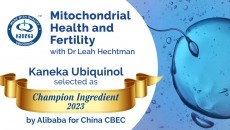Lycopene still not near health claim, FDA review
evidence for associating lycopene and a reduced risk of various
forms of cancer in a recent article.
Published in this month's Journal of the National Cancer Institute, the article looks at the US Food & Drug Administration's (FDA's) 2004 review of the scientific data for tomato or lycopene intake and risk reduction for certain forms of cancer. The issue is relevant to lycopene manufacturers particularly as it affects their ability to eventually get a health claim for their antioxidant ingredient. In 2004, the FDA received two petitions for qualified health claims linking tomatoes and lycopene to a reduced risk of some forms of cancer. Lycopene is an antioxidant that is present in red- and pink-coloured fruits and vegetables. As well as being used as a food colouring, it is also used in supplements. The role of lycopene in heart health and in reducing the risk of certain cancers is supported by a body of research. The FDA subsequently conducted a review, but reported finding no credible evidence supporting lycopene intake and a reduced risk of prostate, lung, colorectal, gastric, breast, ovarian, endometrial, or pancreatic cancer. The agency also found no credible evidence for tomato consumption and a reduced risk of lung, colorectal, breast, cervical, or endometrial cancer, as well as what it said was very limited evidence supporting tomato consumption and the reduced risk of prostate, ovarian, gastric, and pancreatic cancers. The FDA has approved a claim on the role of tomatoes in reducing the risk of prostate, gastric, ovarian and pancreatic cancers. However, these are couched in negative terms that most manufacturers will not use on their packaging. For prostate cancer, for example, FDA issued the claim: "Very limited and preliminary scientific research suggests that eating one-half to one cup of tomatoes and/or tomato sauce a week may reduce the risk of prostate cancer. [The] FDA concludes that there is little scientific evidence supporting this claim." The agency was not sufficiently convinced by the evidence on lycopene itself. In the Journal of the National Cancer Institute review article, Claudine Kavanaugh and FDA colleagues describe the agency's evaluation of the scientific evidence linking tomatoes or tomato-based foods, lycopene, and reduced cancer risk. Their review found no evidence that tomatoes reduced the risk of lung, colorectal, breast, cervical, or endometrial cancer. However, they said they found very limited evidence for associations between tomato consumption and reduced risk of prostate, ovarian, gastric, and pancreatic cancers. In an accompanying editorial, Paul Coates of the National Institutes of Health underscores that in the review FDA had to contend with a limited number of available clinical trials as well as the challenge of communicating to the public the subtleties of the decision. Source: Journal of the National Cancer Institute Published online ahead of print. Doi: 10.1093/jnci/djm037 "The U.S. Food and Drug Administration's Evidence-Based Review for Qualified Health Claims: Tomatoes, Lycopene, and Cancer." Kavanaugh, Claudine et al.












